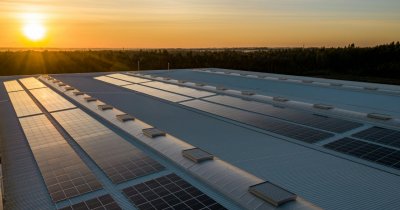As per The Next Web, officials at Airbus stated that "most technologies required for a hydrogen-powered aircraft are emerging already in other industries and we have been working on this for some time already."
With a 2.5% share of the world's carbon emissions, aviation is expanding fast and the world's fleet of airplanes could grow by 80% by 2041, compared to 2019.
H2FLY is another startup working in the aviation field. Based in Stuttgart, the company is developing its own hydrogen-electric plane which has a capacity of 40 passengers and could take off sometime in 2029.
Josef Kallo, founder and CEO of H2FLY, said that "I am a little concerned that we have to tell a realistic path to the realization, even if it’s a little bit more risky for the financing."
With the first maiden flight already taken place in 2016 and with the current record for the highest altitude reached in a hydrogen-powered plane, at 2.200 meters, H2FLY has some experience in the field of sustainable aviation solutions, but officials here think a little caution when it comes to the excitement doesn't hurt.
Company engineers also started working on their next-generation hydrogen propulsion system, which can work for passenger planes with 20 to 80 seats. If all things to right, the system could be certified "by the end of this decade."
A new design for a new generation of planes
The design of the planes is also important, experts say, as they believe retrofitting won't be a long-term solution, especially for large aircraft. Thus, Airbus engineers say that fuel cell-powered aircraft will "need to achieve equivalent or better safety levels [to kerosene-powered jets] before hydrogen-powered aircraft will take to the skies."
There are a few things to consider here, such as the fact that it takes many years to certify an aircraft design, anywhere from five to nine years, and established companies, such as Boeing and Airbus have a big advantage over startups, based purely on experience.
Kallo added that "really visionary is to have a new aircraft designed for the [hydrogen] propulsion and then use that with all the benefits to really have long-range, high-efficiency, low-noise aviation."
There is also the question of storing hydrogen, as the fuel needs either a lot of pressure to be stable or a very low temperature and it's also less dense by volume, compared to kerosene, which means that cargo capacity or passenger seats may have to be sacrificed.
One company building special frames for hydrogen-powered planes is Swiss-based Destinus, which is currently working on a hypersonic plane that can travel at five times the speed of sound and higher.
While it cuts completely on carbon emissions, hydrogen may have one disadvantage in the form of contrails, which are trails of vapors left behind by planes that fly in the sky. As these are currently responsible for 50% of aviation's emissions, researchers at Airbus are testing two different gliders, one with hydrogen and the other with kerosene, to assess how the contrails left behind by fuel cell-powered planes affect the environment.
In the next five years, Airbus also plans to take the hydrogen-version of the A380 to the skies, as the plane will be equipped with liquid hydrogen tanks.
Making sure we have enough hydrogen at hand is another matter that industry members must take into account.
Val Miftakhov, founder of hydrogen fuel-cell powertrain developer ZeroAvia, said that "you can use hydrogen production and hydrogen storage as a grid storage mechanism; you can generate it when the renewable power is abundant on the grid, and then utilize it when you need to on the aircraft."
As time moves fast and there's not much room to experiment anymore, the aviation industry must use all available technologies in order to minimize the impact of the very popular and fast way of travelling.
 Mihai - Cristian Ioniță
Mihai - Cristian Ioniță












Any thoughts?